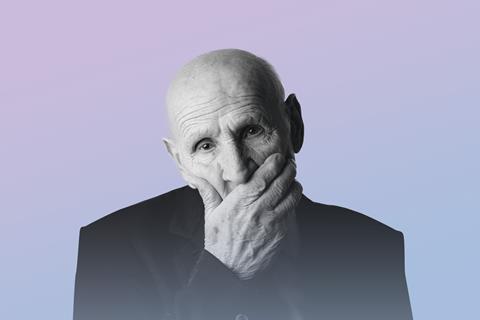
In May 2021 I sat down at a picnic with church friends, as I looked across the circle to an older couple, I thought that he looked ill. Not just full-of-cold kind of ill, but he looked grey in the face, shocked and bewildered. He had recently retired and I worried that he wasn’t enjoying his retirement as he should. Two weeks later, their daughter, a friend of mine, told me her Mum had terminal cancer. It wasn’t him who was ill, it was his beloved wife. Six weeks after that she died. Six weeks prior to the picnic she’d been fit and healthy.
Right now, a friend who is the same age as my husband and has two young children has been given a few months to live.
Loss surrounds us, everywhere we look. Loss of life, loss of access or stability, loss of relationships, friendship and support. And we grieve for the life that is changed or altered in the process.
It is everywhere.
There’s loss on a different level too. As I write this article, the weekend has seen the war in Israel and Gaza ramping up to a horrifying scale, the death of the much-loved actor and comedian Matthew Perry, and also the tragic, traumatic death of Adam Johnson, a young ice hockey star during a match between his team, the Nottingham Panthers and the Sheffield Steelers. Our young people have much to feel devastated about.
I wanted to find out how those in Youth Ministry have handled events such as this previously. It is worth saying upfront that, while it is important to also talk about war and disaster, and also to recognise that we can grieve about many different things in life, this article will focus on grief for the loss of a friend, family member or someone we know, even if only a little.
John Allan, a School Chaplain in the Scottish Borders tells me about a time when he and his team were asked to support their school after a road traffic accident involving a pupil. They had little prepared, but were able to offer to listen to anyone who wanted to talk. By asking open questions or conversation starters such as ‘Tell me about your friend’ or ‘How did you meet?’ they were able to offer solace and comfort to young people who needed the space to grieve.
Alia Pike, a youth worker based in Manchester, tells me about times when she has supported young people to talk about their friend or family member who has died.
Dave Johnson, a detached youth worker in the north east, tells me that they often give out candles to young people they meet on detached to use in memory of loved ones around the time of Remembrance Day. One of the more powerful stories he has of detached work involves spotting a few young people sitting in a graveyard and learning that they were there to pay their respects to a friend whose funeral they had been to that afternoon. Dave and his team were able to support these young people by bearing witness to their memories and grieving.
We may not get a lot of warning about this kind of work, when accidents happen or tragedy strikes, it can mean being involved immediately. But it is also good to build regular opportunities into your practice, because while it’s important to be able to respond in the moment, grief has no end point and lasts as long as it lasts. Remembrance Day gives us a good opportunity to do this, as does Christmas, another key moment in the year when loved ones are missed perhaps more so than in the rest of the year.
Will Taylor is a therapist and former church-based youth worker who specialises in working with grieving young people and children. He also often trains those working with children and young people in how to support those who are grieving; it’s a particular privilege to sit with those who are mourning, and one that has significant ramifications for the rest of that young person’s life.

He recommends remembering that we are youth workers, not counsellors and using the tools that we have in this role whilst also considering these four main tactics:
Time
Time to spend with young people one-to-one is one of the most effective tools in our toolbox for those who need it. It’s important to make the time to sit with someone who needs some company, but without expectations about what that might look like. We might not know what to say or do, but the good thing is that we don’t need to know. Showing up is worth a thousand words we might say.
Opportunity
Whether the grief is triggered by someone close to them or someone at a distance, young people don’t have the same decision making role as the grown-ups in their lives. Giving them the opportunity to talk about anything, to share as they need to is going to make a big difference, even if it’s not what you might be expecting. Be prepared for questions they might feel they can’t ask their grown-ups, questions about what has actually happened to their loved one, what might happen next and whether there was anything they could have done to stop it are all possible.
Permission
Along with the opportunity, young people need the permission to ask hard questions or talk about whatever is on their mind. It is important that this is young person led, they may not really know how to express what they feel, you might be the only adult in their lives giving them permission to do this in a safe place for them. Adults can be very caught up in the admin of death and grief, as well as being very conscious of being ‘socially acceptable’ in their own grief. This all very understandable but may mean that young people who have a bunch of their own feelings might have nowhere else to go with them.
Space
This might be physical space for a community to grieve together, this is important and is likely to happen whether someone organises it or not. Think about how people bring flowers and gifts to a scene, candles and singing can also play a really important role in this. But it might also be about being someone who holds space for others to grieve as well. This will look very different depending on the context, but it’s providing an open heart and listening ear to those in the deepest need.
In amongst all of this it is also important to know where our boundaries are, and to ensure that we have somewhere to go ourselves to process the grief we have been witness to. I believe deeply that as youth workers, our listening ear is crucial, our bearing witness to the difficult and traumatic times of life is what means our ministry has an impact that reaches far beyond ages 11 – 18.
The current season includes All Hallows Day and Remembrance Day, both excellent opportunities to open up conversations about death and grief.
As Youth Ministers we have an essential role to play for those young people who are grieving and would like to engage with us: listening. We are not therapists and should not try to be, we are also not in the parental or familial role, but we can listen when young people want to talk. After all, what is more important in our role than being able to say ‘I have time for you’ to a young person?
One young person, called Ryan, talks about the death of his best friend and his bereavement saying that he wishes he had talked about it earlier than he did. A teacher of his had picked up that something was happening but not for months afterwards and his parents didn’t know for a whole year. Encouraging young people to talk about their losses is something encouraged by the organisation At A Loss, along with others. Ryan also talks of other activities which helped him to process the grief, saying that art and writing really helped in the first few months.
As youth workers we know that creating space for young people to do an activity like art or craft can lead to conversations that are unexpected; there is something about these conversations that can feel sacred and a real privilege to be a part of. Encouraging young people to keep a journal is another activity which can be incredibly helpful for them, writing things down can be easier than saying them out loud! Ryan points out that many of the conversations he had about his friend in the end were through the written word, either in emails or social media direct messaging. He is also quick to say that it can be difficult to know what to say to a grieving young person but it is still important to make the connection, ask if they are OK or to ask about their friend or loved one who has died. Sometimes people might say that they want to be left alone, and that’s OK but only for a short time. It important to get people to open up.
According to the Katherine House Hospice bereavement service these points can assist us in helping bereaved teenagers:
- Be yourself: your own understanding, consistency, routine and boundaries will all provide a safe place in amongst the chaos
- Be prepared to listen: let them lead the conversation, and remember the need is for support and time, not advice
- Help them to identify support networks: both at school and at home
- Encourage guilt free fun: remind them that having fun and laughing does not mean they have forgotten the person who died
And I would add another,
Support them in honouring the person who died: in whatever the young person would like to do this - you might offer to go with them to a graveside, or help them put together a photobook, or paint their nails, or create a memory jar etc This is important to do at various times, not only in the immediate aftermath but can have an impact years later.
There are many good resources out there for dealing with bereavement. Young Minds, the Sue Ryder Trust, your local hospice, The Good Grief Organisation, Hope Again, ataloss.org are all excellent organisations to look up if you would like to know more or find some resourcing material.
If you are supporting a young person or group of young people who are grieving, it is essential that you look after yourself. As the saying goes: we cannot pour from an empty cup. There is a tendency in the world of youth ministry (actually in most ministry circles) to give and give out to others without paying much attention to ourselves. Don’t fall into this trap, instead, find someone who can help you process the emotions you are bound to be feeling yourself, make sure you rest and do something to recharge your own batteries. Protect yourself, in the best possible way.


































